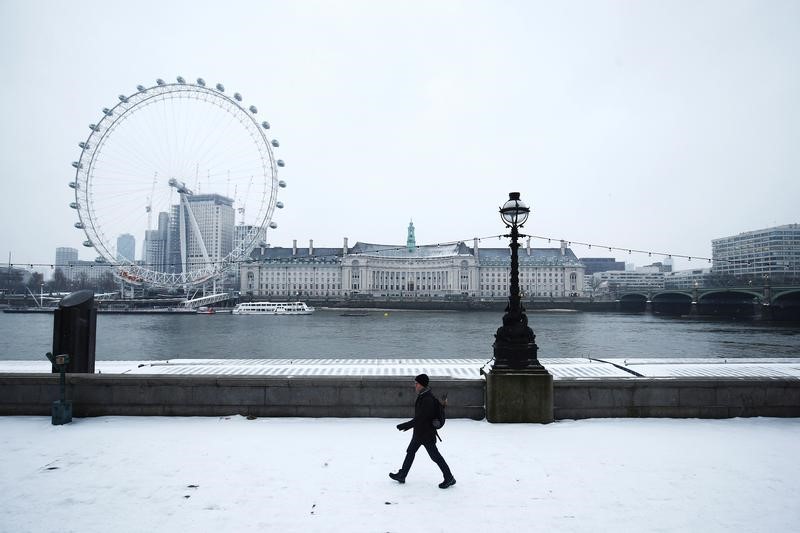Investing.com - Activity in the UK service sector rose at the slowest pace in more than one-and-a-half years last month, according to a closely watched business survey released on Wednesday.
Disruption due to snow and unusually bad weather conditions had been a key factor holding back business activity growth, the report said.
Research firm Markit said its services purchasing managers’ index fell to 51.7 in March, compared to forecasts for a reading of 53.9.
The index had picked up to a four month high of 54.5 in February after the weakest start to the year in nearly a decade.
Services account for around 80% of the UK’s gross domestic product.
New order growth was the slowest in 20 months as the triple force of snow, inflation and Brexit-related uncertainty hit output in the service sector.
The report indicated that inflationary pressures picked up again in March, suggesting that consumer price inflation could remain stubbornly high in coming months.
Employment numbers increased at only a moderate pace in March, with the rate of job creation the slowest seen so far this year.
A similar report earlier in the week showed that while manufacturing activity inched higher in March output in the sector slowed sharply in the first quarter of this year.
Another report showed that activity in the UK construction sector slowed sharply last month due to severe weather disruption.
Taken together, the reports indicate that first quarter growth is likely to have been hit by widespread disruptions caused by unusually bad weather.
“The UK economy iced up in March, suffering the weakest increase in business activity since the Brexit vote amid widespread disruptions caused by some of the heaviest snowfall in years,” said Chris Williamson, chief business economist at survey compiler Markit.
“As a result, first quarter economic growth will likely have been adversely affected. The PMI surveys collectively signal a quarterly GDP growth rate of just under 0.3%, down from 0.4% in the fourth quarter, albeit with the rate of growth sliding to just 0.15% in March alone.”
